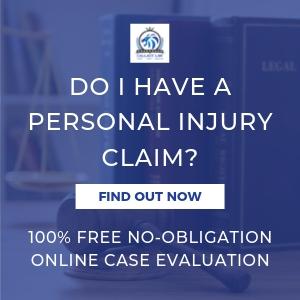What do you do if you are a passenger in a car accident? The steps you should take – and the legal rights that are available to you – are often unclear. Your injuries may be no less severe than the drivers involved, nor is your emotional distress or financial worry any less significant. If you find yourself in this situation, do not hesitate to contact an experienced personal injury attorney immediately; we are happy to walk through your options with you.
NJ Car Accident Laws: No-Fault
Every driver in New Jersey is required to carry at least $15,000 in personal insurance protection, or PIP. When there is an accident, regardless of fault, PIP pays out for medical expenses, limited lost income, and death benefits for survivors, if necessary. If you are injured as a passenger in a car accident, you can file a PIP claim against the driver.
But what happens if your injury and the associated costs exceed PIP coverage or if another driver was at fault? In New Jersey, you may file a lawsuit against the party at fault for a car accident if your injuries involve:
- Loss of a body part
- Significant scarring
- Significant disfigurement
- Loss of fetus
- Broken bones
- Permanent injury (i.e., a body part or organ has not and will not heal to the level of normal function, even with more medical treatment)
Determining fault is critical – and complex
Single-Car Accidents: A single-car accident is when, for example, a driver runs into a stationary object or goes off the road. You may be able to file a claim against the driver of the vehicle in which you were a passenger.
Multiple Vehicle Accidents: This is more complicated as you must establish which driver was responsible. Consulting with a car accident lawyer is in your best interests; they can help you determine which driver’s actions caused the crash.
Shared Fault: It can be more complex still when more than one driver is at fault. NJ car accident laws include the principle of “comparative negligence.” The actions of each driver are assessed, and they are assigned a percentage of fault. For example, if Driver A was traveling through a parking lot, going a bit too fast, and Driver B backs out of a spot and hits them, Driver A bears some of the responsibility – though it is less than that of Driver B. Let’s say it’s 25%. This means that any compensation Driver A is entitled to will be reduced by 25%. Your status as a passenger is less clear. An experienced car accident lawyer can help maximize your compensation.
What If You’re A Passenger On Public Transportation?
If you were injured as a passenger on a train, bus, or other form of public transit, you may be able to take action against the local government and, perhaps, specific employees. This is more complicated. You have just 90 days from the date of the accident to file a Notice of Claim, and proving negligence is more difficult. Please consult an attorney as soon as possible.
Fighting for Your Rights
If you’re a passenger in a car accident, you may feel vindictive or guilty for filing a claim against the driver of the car you were in. That is completely understandable. That is also what insurance is for. When you are injured by the actions of another party, you may be entitled to compensation. You are certainly entitled to medical expenses for your injury. It is nothing more than ensuring you receive the financial assistance you need to recover and move forward.
To protect your rights, please contact Callagy Law’s team of experienced attorneys. We are here to help you navigate the tricky legal terrain and explore your options.

